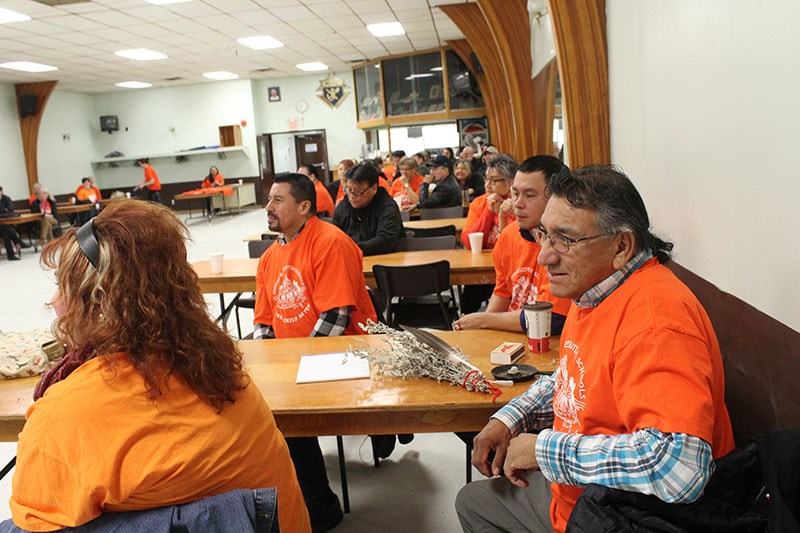Keewatin Tribal Council (KTC) made their contribution to Orange Shirt Day on Oct. 1 by hosting a communal gathering at St. Lawrence Hall in Thompson to honour residential school survivors.
Although Orange Shirt Day falls on Sept. 30, KTC members still put together their own event on Monday in order to shine a light on this dark period in Canadian history.
Since 2013, people across the country have donned orange shirts in honour of Phyllis Webstad, who had this specific article of clothing, along with reminders of her Indigenous culture, stripped away when she first arrived at a British Columbia residential school in 1973.
Today, Webstad has woven this piece of trauma into a nationwide movement to remember the thousands of Indigenous people who are still suffering from the after-effects of attending these institutions and the children who never made it home.
Manitoba Keewatinowi Okimakanak (MKO) grand chief Garrison Settee kicked off the gathering in Thompson by talking about how his grandmother was affected by the residential school system.
“She was a grandmother that never really knew how to show affection or warmth to her grandchildren,” he said. “She did not have the capacity to nurture us as grandchildren … because she lived through unspeakable trauma and much had happened in her life.”
Residential school survivor Walter Wastesicoot talked about how he continues to live with these memories every single day and that one of his only reprieves is to share these stories with other people.
“It’s important for me to remember because when I didn’t remember I tried to replace these memories with alcohol and drugs and that’s not a good journey,” he said. “So, for the people that I see here from other cultures, I invite you to share in this day and I invite you to open your minds and your hearts to the experience of others.”
Following a lengthy presentation that laid out the broader cultural impacts of residential schools, the attendees conducted a walk around the city’s downtown core and eventually returned to St. Lawrence Hall to share more stories and perform a round dance with students from Wapanohk Community School.
KTC’s Clint Saulteaux said that events like Orange Shirt Day are not just important because they help people understand the past, but because they help society plan for a better future.
“When you gain a deeper understanding of the history and how profound it really was then you start to have an understanding of the social problems that are going on today,” he said. “The homelessness, the addictions, the family violence, the youth suicides, because a lot of youth today are growing up with no knowledge of their culture, no knowledge of their history and everything they know about First Nations history is really negative.”
“With understanding comes respect and we just want solidarity, we just want to have unity with people.”
In addition to commemorating Orange Shirt Day for the six straight year, Webstad also published a children’s book called The Orange Shirt Story in early September in the hopes of spreading her story to a younger audience.




